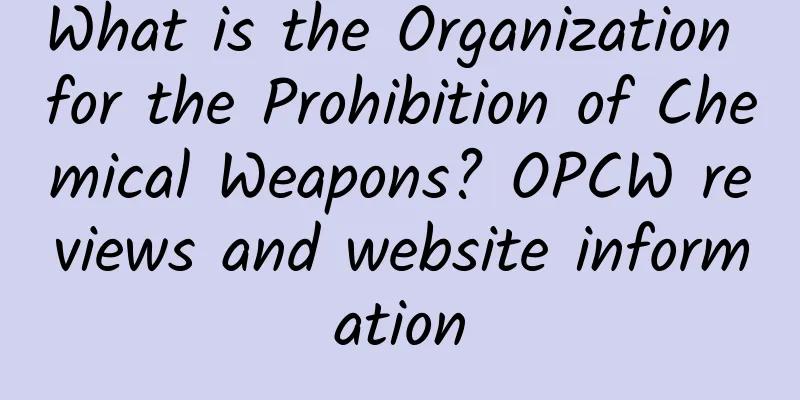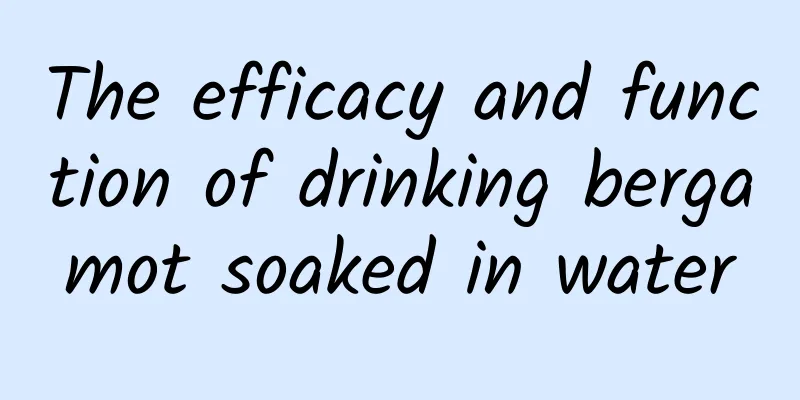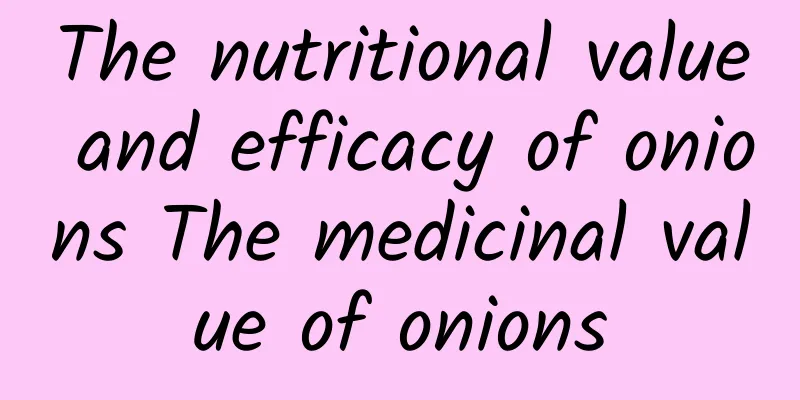What is the Organization for the Prohibition of Chemical Weapons? OPCW reviews and website information

|
What is the Organization for the Prohibition of Chemical Weapons website? The Organization for the Prohibition of Chemical Weapons (OPCW) is an international organization created to implement the Chemical Weapons Convention. It was established in 1997 and is headquartered in The Hague, the Netherlands. It mainly promotes the prohibition and destruction of chemical weapons and won the Nobel Peace Prize in 2013. Website: www.opcw.org The Organisation for the Prohibition of Chemical Weapons (OPCW) is an important international organization dedicated to eliminating the threat of chemical weapons worldwide. Since its establishment in 1997, the organization has played a central role in promoting the implementation of the Chemical Weapons Convention (CWC), supervising the destruction of chemical weapons and preventing their proliferation. As an independent organization under the framework of the United Nations, OPCW is not only committed to ensuring the complete prohibition and destruction of chemical weapons, but also promoting the development of the peaceful use of chemical science through international cooperation and technical assistance. The official website of the Organization for the Prohibition of Chemical Weapons is www.opcw.org . This website is not only a window for the public to understand the work of the OPCW, but also an important platform for member states to exchange information and share experiences. Through this website, users can obtain the latest progress in the destruction of chemical weapons, information on technical training programs, as well as policy documents and research reports related to chemical safety. Background and MissionThe creation of the Organization for the Prohibition of Chemical Weapons stems from the international community's profound understanding of the harm of chemical weapons. Chemical weapons have been regarded as a terrifying tool of war since the First World War due to their great lethality and inhumanity. Although the international community adopted the Geneva Protocol in 1925 to prohibit the use of poison gas and other chemical weapons in war, it did not completely solve the problems of the research, development, production and storage of chemical weapons. Therefore, in order to achieve the goal of a comprehensive ban and destruction of chemical weapons, the Chemical Weapons Convention was officially opened for signature in 1993 and entered into force in 1997. In the same year, the Organization for the Prohibition of Chemical Weapons came into being and became a specialized agency responsible for supervising and implementing the convention. The core mission of OPCW includes the following aspects:
Achieving these goals requires global collaboration and transparency, and OPCW ensures that these goals are achieved through its technical expertise and rigorous verification procedures. Organizational structure and operating mechanismThe OPCW consists of three main organs: the Conference of States Parties, the Executive Council and the Technical Secretariat.
In addition to the above-mentioned institutions, OPCW has also established a number of regional centers and technical support units to better serve the needs of member states. For example, the Verification Department of the Technical Secretariat is responsible for conducting on-site inspections of chemical facilities in States Parties to confirm their compliance with the Convention. The International Cooperation Department focuses on helping developing countries improve the safety and sustainability of their chemical industries. The operation of the OPCW relies on a strict verification mechanism. This mechanism includes a declaration system and on-site inspections. States Parties must submit detailed reports to the OPCW on their chemical weapons stockpiles, production facilities and other related activities. Subsequently, the Technical Secretariat will send a professional team to the site for verification to verify the authenticity of the declared content. In addition, the OPCW will regularly conduct random inspections of chemical production companies to ensure that they are not engaged in any violations of the convention. Achievements and ChallengesSince its founding, the OPCW has achieved many important achievements. As of 2023, 193 countries have become parties to the Chemical Weapons Convention, covering almost all countries in the world. This shows the high level of consensus and support for the ban on chemical weapons in the international community. In addition, the OPCW has overseen the destruction of a large number of chemical weapons, including some of the most deadly poisons in history. For example, during the Syrian civil war, the OPCW successfully coordinated the removal and destruction of the country's chemical weapons, demonstrating its key role in global crises. However, despite a series of remarkable achievements, the OPCW still faces many challenges. First, some countries have not yet joined the convention or have failed to fully fulfill their obligations, which leaves loopholes in the global efforts to ban chemical weapons. Second, with the advancement of science and technology, the potential threat of new chemical weapons is also increasing. For example, the development of nerve agents and other highly toxic compounds may bypass existing verification mechanisms, posing new security risks to the international community. In addition, allegations of the use of chemical weapons in conflicts in certain regions have also put the OPCW's investigation capabilities and credibility to the test. In the face of these challenges, OPCW has continuously adjusted its strategies and methods. For example, it has strengthened its cooperation with scientific research institutions to keep abreast of the latest developments in chemical technology; at the same time, it has ensured that violations can be detected and prevented more effectively by improving the sensitivity and efficiency of verification technology. The significance of winning the Nobel Peace PrizeIn 2013, the OPCW was awarded the Nobel Peace Prize for its outstanding contribution to the elimination of chemical weapons. This honor not only recognized the work achievements of the OPCW over the years, but also set an example for the international community, demonstrating the important role of multilateral cooperation in solving global problems. In its award citation, the Nobel Committee noted that the OPCW, through its unremitting efforts, "eliminated most of the world's known chemical weapons", thereby "reducing the risk of humanity being threatened by weapons of mass destruction". In addition, the committee also emphasized the OPCW's decisive action in the Syrian crisis, believing that this was a major victory for the cause of peace. After winning the Nobel Peace Prize, the OPCW's influence has further expanded. More countries have begun to pay attention to the importance of banning chemical weapons and actively participate in related activities. At the same time, this award has also inspired the OPCW to continue to advance its mission and not back down even in the face of complex situations. Future OutlookLooking ahead, the OPCW will continue to play a leading role in global chemical safety. In order to respond to emerging threats and challenges, the OPCW plans to take the following measures:
In addition, the OPCW will also work to promote the universalization of the Chemical Weapons Convention and encourage countries that have not yet joined to sign and ratify the treaty as soon as possible. Only when all countries become parties can the goal of a global ban on chemical weapons be truly achieved. In conclusion, the OPCW is an indispensable international institution whose work is of great significance to maintaining global peace and security. Through continued efforts and innovation, the OPCW is expected to continue to lead the international community towards a world without chemical weapons in the future. |
<<: How is the German parrot? German parrot reviews and website information
>>: What is Liberty Global? Liberty Global Company Reviews and Website Information
Recommend
How is Jubii Search? Jubii Search Review and Website Information
What is Jubii Search? Jubii is Denmark's large...
What is LyondellBasell Industries like? LyondellBasell Industries reviews and website information
What is the website of LyondellBasell Industries? ...
What are the benefits of niacin to the body? Side effects of niacin
Niacin is a nutrient that is beneficial to the hu...
White lentil rice porridge
White lentil rice porridge has many benefits. Let ...
Nutritional value and efficacy of kiwi fruit
Kiwi fruit is known as the king of VC. It is a de...
Terra Mexico review and website information
What is Terra Mexico? Terra.com.mx is Terra's ...
What is the Journal of Plant Protection Research like? Reviews and website information of the Journal of Plant Protection Research
What is the Journal of Plant Protection Research? ...
Coltsfoot flower pictures Coltsfoot flower effects and functions
Coltsfoot is a medicinal herb that many women oft...
What is Freebies Booth like? Freebies Booth review and website information
What is Freebies Booth? Freebies Booth is a free d...
Tips for buying durian Tips for choosing durian
Durian is a tropical fruit with excellent nourish...
How to make delicious ham
Ham is a kind of meat made with auxiliary materia...
What is Danaher Group like? Danaher Group reviews and website information
What is the website of Danaher Group? Danaher Grou...
How is the Chinese Embassy in Nigeria? Reviews and website information of the Chinese Embassy in Nigeria
What is the website of the Chinese Embassy in Nige...
What is the Geberit Group like? Geberit Group reviews and website information
What is the Geberit Group website? Geberit Group i...
What is Hyatt Hotels Corporation like? Hyatt Hotels Corporation reviews and website information
What is the website of Hyatt Hotels Corporation? H...









